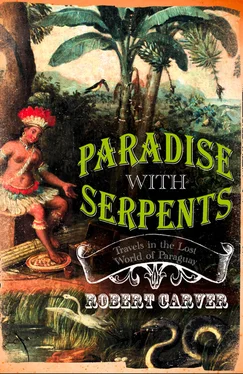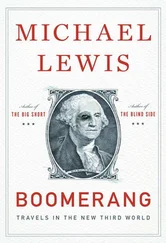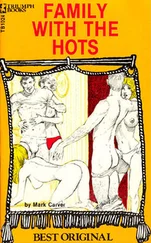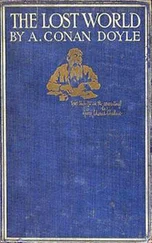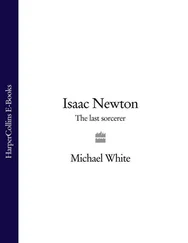The flight was all but empty. I had been earnestly quizzed by the security staff about my armoury. Was I certain I didn’t have any little amuse-gueules tucked away in my boots, sleeves, or hat? No little derringer pistols, ladies’ handguns, odd trifles I might in my haste have forgotten? No plastic guns, like the Glock, which wouldn’t have shown up in the X-ray machine? We were all frisked and turned over, very politely, three times before we were allowed on board. The group of cowboys sat at the front and got merry on beer. I sat at the back and concentrated on Argentine red wine. The plane went on afterwards to Cordoba in Argentina – Paraguay was just an embarrassing little stop to be got over as quickly as possible. The flight seemed very quick. Before I knew it we were banking over the river, below us a tropical city of low-rise redroofed houses, much dark green foliage, and a few taller buildings in the centre. My stomach knotted up tightly. Why on earth was I going into one of the most dangerous countries on Earth? I let the cowboys – indeed let all the other passengers – get off first, then I ambled slowly in late-afternoon tropical heat across the tarmac. The airport building was shabby concrete, low and small. You walked to the terminal on foot. I had had to fill in an old-fashioned white immigration card, exactly the same size and type as I’d filled in as a child in colonial Cyprus. ‘I’ve flown back into the 1950s,’ I thought, as I made for the Customs Hall.
Inside, under a high ceiling, a strange scene was being enacted. Several passengers with open suitcases were in deep argument with uniformed Customs officials. Between them were being passed a collection of automatics, pistols, rifles, sub-machine guns and boxes of ammunition that had clearly come out of the luggage. They were arguing, politely but forcefully about how much duty should be paid on these items. All the Customs men were engaged in this task. I kept walking.
A young woman in a smart uniform darted forward and smiled at me. ‘ ¿Diplomatico? ’ she asked.
This threw me. ‘ Yo soy inglés ,’ I stammered.
‘ ¡Bravo! ’ she said. ‘ ¡Bravo – el embajador británico! ’ even more loudly, and started to applaud me, clapping her hands. The Customs men looked up at me from their deliberations, and gave me great big smiles. Unnervingly, they and their clients with the weaponry all started to applaud me, clapping their hands and calling out. ‘ ¡Bravo … ! ¡Bravo! ¡El embajador británico! ’ I had only a small bag on wheels: I bowed to the left and to the right of me, and gave what I thought might pass as an ambassadorial benediction with my free hand, and kept on my way.
Another man stepped forward, took my immigration card, stamped my passport, and gave me a smart salute. ‘Any firearms, Your Excellency?’ he asked in Spanish.
‘ No, señor, nada de nada ,’ I replied. ‘ Pasar, pasar, Excelencia ,’ he said, motioning me with his hand. I moved out into the arrivals hall, which was already all but empty. I was in Paraguay, reborn as an ambassador. I kept walking until I saw the aseos [toilets], and then darted in. I was now in a muck sweat, and it wasn’t the heat. I had arrived all right, but what the hell had I got myself into?
The queue at the Cambio was short but the wait interminable. In front of me was a young North American banker and his girlfriend, here on business. ‘She speaks German so we should be OK,’ he told me. We exchanged cards. They were staying at Madame Lynch’s old estancia , now the best hotel in Asunción. Eliza Lynch is one of the few people connected with Paraguay known to the outside world. She was the mistress and éminence grise of the mid-nineteenth-century dictator López, who ruined the country with his insane war against Argentina, Brazil and Uruguay all at the same time.
When my turn came I asked the cashier behind the counter to change US$100 into guarani. He look at me as if I was crazy. ‘You want to change all of this into guaranis?’ His expression told me that whatever else Paraguay was going to be it was not going to be expensive. My glance fell lightly on the automatic pistol in a shoulder holster under his arm, and a large revolver he was using as a paperweight to hold down mounds of ancient and dirty bank notes from being blown all over the place by the fan. My eyes slid, unavoidably, to the security guard who was sitting on a chair, the chair high on a desk, at the far end of the room. He was in uniform and had a bazooka on his shoulder. It was pointed straight at me. There was a heavy metal grill between me and the man counting and re-counting hundreds of thousands of guarani notes, but the bazooka and the man’s stare made it hard for me to concentrate on the transaction. I did have the wit to ask for one of the ten thousand notes to be broken down into thousands. I hate the airport taxi rip-off, and always get the bus into town if there is one. I knew already the bus driver wouldn’t be able to change a thousand guarani note. The man with the bazooka wasn’t South American theatricals, I later discovered. The current method of bank robbery in Paraguay and Brazil was with an armoured car; these military vehicles simply ploughed into the banks and smashed through whatever bars were there. Bitter experience had taught the Paraguayans that a man with an antitank weapon was the only way of stopping these heists. Every bank I went into had one of these characters, as well as the run-of-the-mill fellows with sub-machine guns, pistols and grenades. Bank robberies were as common as thunderstorms and as violent. One of the current scandals in the papers, I discovered, was the use of a Paraguayan army armoured car in a bank robbery just across the border in Brazil. The Minister of Defence and the President were accused of having rented out the armoured car to the mob who carried out the raid, in return for a share of the proceeds. The Brazilians claimed they had photos of the armoured car during the raid, and then afterwards, back in its army park in Paraguay. They claimed US$15 million had been stolen, but the Paraguayan press claimed this was an exaggeration – more like $8 million, they thought. When asked why he robbed banks, Butch Cassidy had replied: ‘It’s where they keep the money.’ He had been gunned down in Bolivia, eventually, just next door to Paraguay.
I evaded the lurking taxi-drivers who I knew might cheat – and possibly rob me – and walked out to the bus stop. A couple of obviously quite poor locals were waiting for the bus into town. They eyed me cautiously, but then looked away. A more hopeful fellow carried a briefcase, wore a smart watch and had a shirt with a tie. I fell into conversation with him, and explained I was new to the country – did one buy a ticket on the bus, from a driver, or from a kiosk? He was helpful and informative and I was pleased to discover that I understood his Spanish and he understood mine. The bus arrived, empty, and my new friend helped me get my ticket. We sat together, and I asked him about the state of things as we rolled towards town.
Luis Gonzalves was a Customs official, just coming off duty. Mercifully he had missed my apotheosis as fake ambassador. He gave me a thorough rundown on everything. Things were very bad. Fifteen banks had gone bust taking almost everyone’s savings with them. The government was both weak and deeply corrupt. You could trust neither the police nor the army – both were corrupt and criminal. Civil servants hadn’t been paid for six months, some not for a year. The police hadn’t been paid for three months, and if they weren’t paid soon there would be a revolution. Foreigners were leaving the country in droves – every plane out was packed to capacity, every plane in virtually empty. The only people making money were the cocaleros who exported cocaine, and the mafia who stole from everyone. What about crime? Very bad, he said, and getting worse. Buses held up and the passengers robbed, even in central Asunción, every day. Shootings and kidnappings. Bank robberies and stick-ups. Everyone was sick of it. Many wished Stroessner was back in power. ‘That was a paradise then, but we didn’t know it,’ he said, a view I heard echoed by almost everyone I met. No one I spoke to stood up for what passed for ‘democracy’ in Paraguay.
Читать дальше
